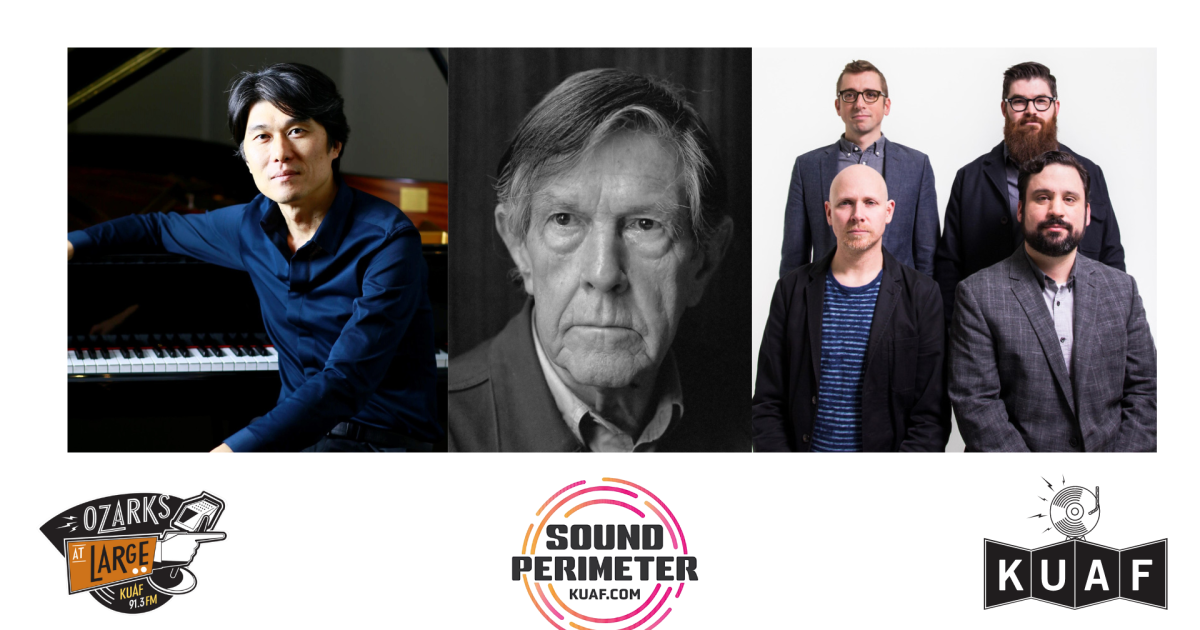Understanding The Sound Perimeter: Music's Unifying Force

Table of Contents
Music Transcends Language Barriers
Music's ability to connect people across cultures and languages is a testament to its universal appeal. It speaks a language understood by all, regardless of their native tongue.
Universal Emotional Language
Music acts as a universal emotional language. Whether you're listening to a traditional Japanese koto piece or a vibrant Brazilian samba, the underlying emotions – joy, sorrow, longing, excitement – are often readily apparent.
- Examples: The melancholic beauty of Chopin's Nocturnes evokes sadness universally; the upbeat rhythm of many African drumming styles conveys joy and celebration; the powerful crescendos of classical symphonies can generate feelings of awe and wonder.
- Neurological Studies: Numerous studies demonstrate consistent neurobiological responses to music across cultures, showing that the emotional impact of music transcends linguistic and cultural differences. Our brains process musical emotions in similar ways, regardless of our background.
- Music Therapy: Music therapy utilizes this universal emotional language to help patients across languages and cultures to manage stress, anxiety, and even physical pain. The healing power of music resonates deeply, bypassing verbal communication barriers.
Cultural Exchange and Understanding
Music acts as a potent tool for cultural exchange and understanding. The fusion of musical styles from different cultures creates vibrant new forms of expression, promoting appreciation and respect for diverse traditions.
- Musical Fusions: Consider the fusion of flamenco and jazz, or the blending of traditional Indian ragas with Western classical music. These collaborations demonstrate the creative potential of cross-cultural musical interactions, breaking down barriers and fostering mutual understanding.
- Cultural Diplomacy: Music plays a vital role in cultural diplomacy, fostering positive relations between nations and building bridges of understanding across geographical and political divides. Musical exchanges and collaborations can build trust and create shared experiences.
- World Music's Impact: The global popularity of "world music" exposes people to diverse musical traditions, broadening perspectives and increasing cultural awareness. Exposure to different sounds promotes tolerance and empathy.
Music Fosters Community and Shared Identity
Music doesn't just connect individuals; it fosters a sense of community and shared identity. The collective experience of creating or listening to music builds bonds that transcend individual differences.
Collective Experiences
The power of collective musical experiences is undeniable. Whether it's the roar of the crowd at a rock concert, the harmonious voices of a choir, or the rhythmic pulse of a traditional dance, shared musical experiences create powerful bonds.
- Social Benefits of Group Music: Participation in choirs, bands, or orchestras offers numerous social benefits, fostering teamwork, collaboration, and a strong sense of belonging. The shared effort of creating music strengthens social connections.
- Sense of Belonging: The collective energy generated at a music festival, for instance, creates an intense feeling of belonging and shared identity. Everyone is united by their passion for music.
- Music in Social Movements: Music has historically played a powerful role in social movements and protests, uniting individuals around a common cause and amplifying their voices. Songs can become anthems of solidarity, strengthening community bonds.
Generational Bonds
Music serves as a powerful bridge across generations, creating shared memories and fostering intergenerational connections.
- Music Spanning Generations: Certain musical styles or artists resonate across generations, creating a common ground for shared experiences and conversations. Classic rock, for example, continues to captivate audiences across different age groups.
- Family Traditions: Music often plays a crucial role in family traditions, with songs and musical instruments passed down through generations, reinforcing family connections and preserving cultural heritage.
- Preserving Cultural Heritage: Traditional folk music serves as a valuable repository of cultural history and identity, connecting current generations to their ancestors and enriching their understanding of their heritage.
Music Promotes Empathy and Understanding
Music's ability to tell stories and evoke profound emotions fosters empathy and understanding, helping us connect with others on a deeper level.
Storytelling Through Sound
Music is a powerful storytelling medium. It can convey complex emotions and narratives, allowing listeners to connect with the experiences and perspectives of others.
- Music in Film and Theatre: Music is integral to film, theatre, and documentaries, enhancing the emotional impact of storytelling and allowing audiences to connect more deeply with the characters and their journeys.
- Personal Narratives: Music can be used to express deeply personal stories and experiences, creating a space for shared vulnerability and connection.
- Music in Conflict Resolution: Music can play a surprisingly effective role in conflict resolution, by creating shared experiences and promoting empathy between opposing groups.
Breaking Down Social Barriers
Music has the remarkable ability to bring together people from diverse social backgrounds, promoting inclusivity, and challenging prejudice.
- Social Inclusion Initiatives: Many music initiatives focus on social inclusion, using music as a tool to build bridges between different communities and break down barriers based on race, ethnicity, or socioeconomic status.
- Overcoming Prejudice: Music can foster understanding and empathy by exposing individuals to diverse musical styles and cultures, challenging preconceived notions and prejudices.
- Community Development: Music programs in underserved communities can contribute significantly to social development, creating opportunities for self-expression, collaboration, and positive social interaction.
Conclusion
Music's power to transcend language barriers, build community, and promote empathy within its sound perimeter is undeniable. It connects us on emotional, cultural, and social levels, creating a sense of shared humanity. By exploring the nuances of this powerful sound perimeter, we can better understand the profound impact of music on individuals and society. Expand your own understanding of the sound perimeter by actively engaging with music from diverse cultures and backgrounds. Experience the unifying power firsthand and share the magic with others. Let the sound perimeter of music resonate in your life and community.

Featured Posts
-
 Peppa Pig 21 Year Old Mystery Solved Details Emerge
May 22, 2025
Peppa Pig 21 Year Old Mystery Solved Details Emerge
May 22, 2025 -
 The Feasibility Of Trumps Golden Dome Missile Shield
May 22, 2025
The Feasibility Of Trumps Golden Dome Missile Shield
May 22, 2025 -
 Alles Over Tikkie Betalen En Ontvangen In Nederland
May 22, 2025
Alles Over Tikkie Betalen En Ontvangen In Nederland
May 22, 2025 -
 Discover The Versatile World Of Cassis Blackcurrant
May 22, 2025
Discover The Versatile World Of Cassis Blackcurrant
May 22, 2025 -
 Abn Amro Toenemend Autobezit Drijft Occasionverkoop
May 22, 2025
Abn Amro Toenemend Autobezit Drijft Occasionverkoop
May 22, 2025
